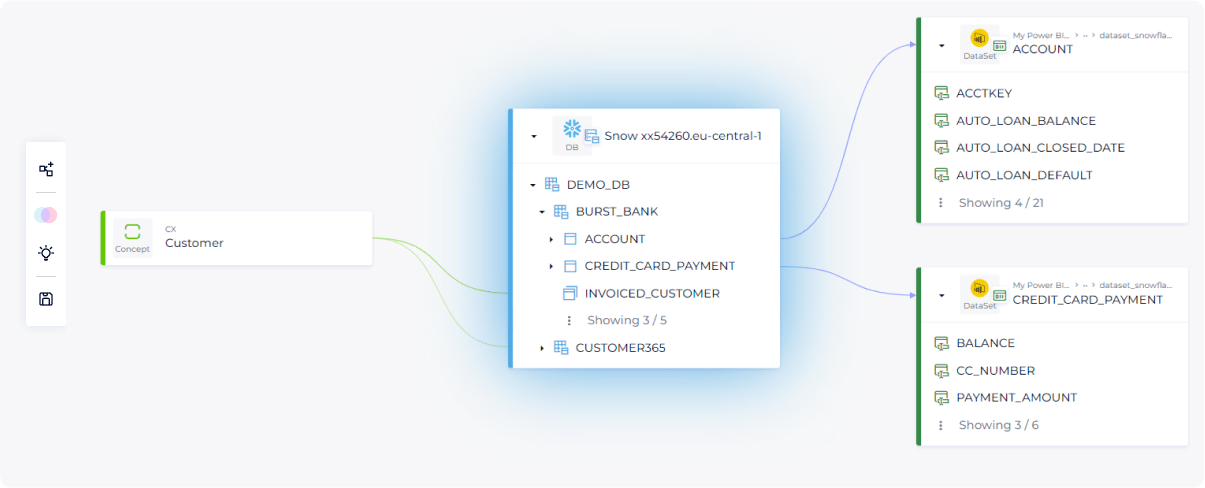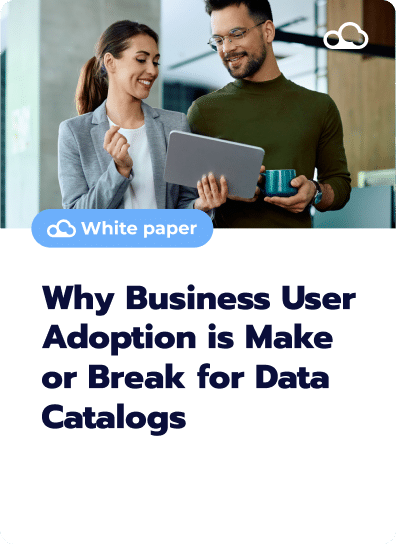Imagine harnessing the full power of your organization's data to drive growth, innovation, and competitive advantage. Data governance is the key to unlocking this potential, ensuring your data resources are effectively managed and optimized.
However, the success of any data governance program relies heavily on two critical factors: executive sponsorship and effective change management. These elements work together to bring your data governance projects to life.
Still, it's essential to understand their roles and contributions to maximize their impact on your organization's data management success.
The crucial role of executive sponsorship in data governance success
Executive sponsorship is absolutely crucial for the success of data governance projects. Executives help secure organizational commitment to these initiatives and ensure programs have access to the necessary resources and support. To fully understand their importance, let's explore executives' critical roles in supporting data governance initiatives.
- Aligning data governance with business objectives: Executive sponsors align data governance initiatives with the company's other objectives and strategies. They ensure that data governance efforts focus on achieving desired outcomes and driving business value rather than merely addressing technical or regulatory requirements. By connecting data governance with business objectives, sponsors help create a shared understanding and vision for the project across the organization.
- Establishing & communicating the business case for data governance: Executive sponsors are responsible for establishing and communicating the business case for data governance within the organization. They highlight the potential risks and ramifications of not supporting the program while championing its benefits. By presenting a compelling business case, executive sponsors help secure the necessary buy-in and support from other stakeholders. This support makes obtaining the required resources and commitment for the project's success easier.
- Overcoming organizational silos & encouraging collaboration: Data governance initiatives often require collaboration across different departments and teams. Executive sponsors play a crucial role in breaking down organizational silos and fostering a culture of collaboration. They can help create a shared vision for data governance and facilitate cross-functional communication and cooperation, ensuring everyone works together towards common goals.
- Mitigating risks & overcoming challenges: Data governance projects can face various risks and challenges, such as resistance to change, competing priorities, or limited resources. Executive sponsors can help mitigate these risks by actively monitoring the progress of data governance initiatives, addressing potential roadblocks, and ensuring that the project remains on track. They can also provide the necessary support and resources to overcome challenges and maintain progress.
- Measuring & demonstrating the value of data governance: To ensure ongoing support and commitment, executive sponsors must demonstrate the value and impact of data governance initiatives. Defining key performance indicators (KPIs) to measure the success of data governance efforts, tracking progress against these KPIs, and communicating the results to stakeholders is an effective strategy. By showcasing the tangible benefits of data governance, executive sponsors can help secure ongoing support and commitment from the organization.
The importance of executive sponsorship in data governance projects cannot be overstated. Executives are critical in aligning data governance initiatives with business objectives and fostering a data-driven culture. By prioritizing executive sponsorship, organizations can expect increased stakeholder buy-in, improved collaboration, and a higher likelihood of achieving desired outcomes in data governance projects.
Key aspects of effective change management in data governance
A practical approach to change management is also crucial for successfully implementing data governance projects. Organizations may struggle to navigate the challenges and complexities of adopting new data management practices and systems. By focusing on the following critical aspects of change management, organizations can maximize the chances of success in their data governance initiatives.
Developing a comprehensive change management strategy
Engaging & empowering stakeholders
Establishing a clear & compelling vision for change
Creating a communication plan
Providing training & support
Celebrating success & recognizing contributions
Focusing on these keys to successful change management can significantly increase the likelihood of achieving desired outcomes. By developing a comprehensive strategy, engaging and empowering stakeholders, providing training and support, and monitoring progress, organizations can navigate the challenges associated with implementing data governance initiatives and realize their full benefit.
Establishing data governance literacy for organizational success
Establishing data governance literacy on an organizational level requires a strategic approach that involves educating, training, and fostering a culture of data stewardship. Here are some steps to establish data governance literacy:
#1: Promote a data-driven culture
To foster a data-driven culture, organizations should emphasize the value of data in driving business success. This can be achieved by showcasing real-life examples of how data-driven decision-making has led to positive outcomes.
For instance, highlighting a marketing campaign that utilized customer data to target specific demographics and achieved higher conversion rates. Recognize and reward employees who demonstrate data-driven decision-making and innovative approaches to problem-solving, encouraging others to follow suit.
#2: Develop a data governance framework
Establishing a comprehensive data governance framework is crucial for guiding data management practices. This framework should outline the organization's goals, policies, processes, roles, and responsibilities related to data governance. For example, it can define data ownership and establish data quality standards.
By educating employees about the framework, organizations ensure that everyone understands their roles and responsibilities in data governance, reducing confusion and promoting consistency in data management practices.
#3: Conduct training and educational programs
Implementing training programs and workshops is essential for educating employees about data governance principles and practices. These programs should cater to different levels of expertise and roles within the organization. For instance, offering introductory courses for employees new to data governance and more advanced training for data stewards or managers responsible for implementing data governance policies.
By providing targeted education, employees gain the necessary knowledge and skills to effectively participate in data governance initiatives.
First-class Data Lineage
DataGalaxy enhances data governance by establishing a trusted source of truth with our detailed exploratory Data Lineage visualization. Understand data flows, relationships, and health to ensure data integrity and enhance decision-making across your organization to ensure you never lose control.

#4: Create educational resources
Developing accessible educational resources further enhances employees' understanding of data governance. Guides, manuals, e-learning modules, and FAQs can be created to serve as self-paced learning materials. For instance, an e-learning module can cover topics such as data privacy regulations or data classification practices. These resources enable employees to learn at their own pace, ensuring continuous access to valuable information about data governance concepts and practices.
#5: Appoint data stewards
Designating data stewards within different departments and business units helps ensure accountability and data quality. Data stewards are responsible for implementing data governance policies, monitoring data quality, and promoting data literacy within their teams.
For instance, a data steward in the finance department may oversee data integrity in financial reports and provide guidance on proper data handling. Appointing data stewards reinforces the importance of data governance at a grassroots level, enabling more effective data management across the organization.
By implementing these steps, organizations can establish data governance literacy at an organizational level, promoting a culture of data stewardship and enabling better decision-making processes.
Conclusion
Executive sponsorship and change management play significant roles in the success of data governance projects. By prioritizing both, executives, managers, and other data professionals can help their organizations effectively navigate challenges associated with implementing data governance initiatives.
Organizations that effectively incorporate executive sponsorship and change management in their data governance efforts are better positioned to thrive in today's data-driven business environment.
By fostering a culture of data literacy and stewardship and enabling better decision-making processes, these organizations can leverage data as a strategic asset, improving operational efficiency and gaining a competitive advantage in the market.
Your data,
revolutionized









